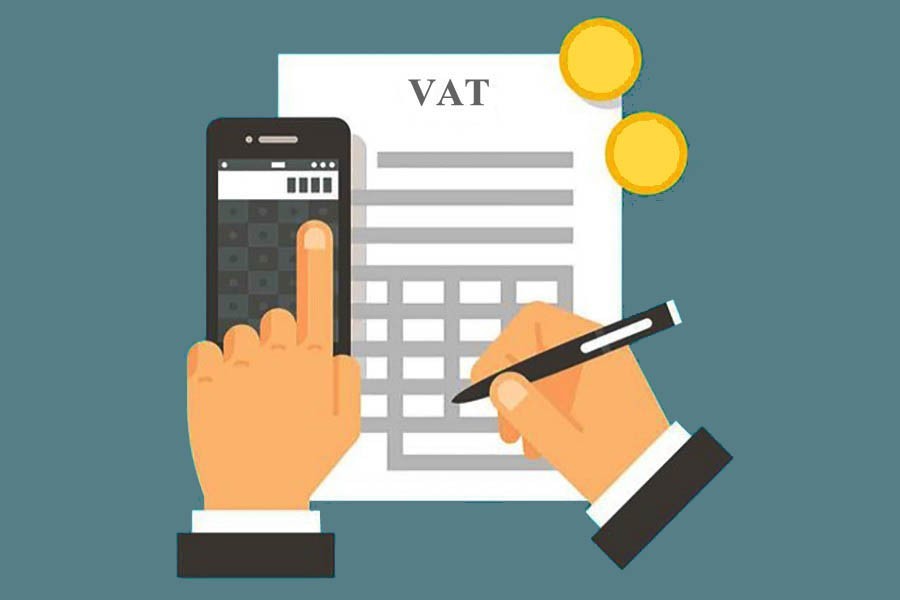The National Board of Revenue (NBR) intends to expand the VAT (value-added tax) net instead of raising the VAT rate in the budget for the next fiscal year (FY), said its VAT (policy wing) member Md Masud Sadiq while talking to the FE recently.
He assured the businesses of the NBR's sincere efforts to work hand in hand with them in tackling the damage being caused to the economy by the Covid-19 pandemic.
In this context, he referred to the holding of several meetings with various stakeholders to make the next budget inclusive and participatory.
The issue of VAT has been one of the most discussed ones in recent years because of the introduction of new VAT law. The new law adopted in 2012 took seven years to be enforced in 2019. However, the new law had lost much of its bite because of several amendments pushed by the businesses.
Mr Sadiq said the expansion of the tax net along with plugging of holes in it would get priority in the budget for next FY to recover from the pandemic-induced revenue losses.
He said the NBR has always been pro-business and this is evident from its move to adjust the paid Advance Tax (AT) through the simplified VAT rebate process at the time of submission of monthly return.
Mr Sadiq said the NBR while addressing the challenges of full enforcement of the new VAT law would also look into the problems faced by businesses.
" We will prioritise the automation of the VAT administration for successful implementation of VAT law. But that would require higher administrative efficiency and manpower to ensure better monitoring and improved services to the taxpayers", he said.
Asked about the contribution of the major sectors, including tobacco and telecom, to the revenue generation efforts, he said the contribution of tobacco, cement and telecom has been satisfactory, to some extent, during the pandemic. Yet it was not up to the level expected by the NBR.
He said the NBR could not mobilise enough revenue from the gas sector as it waived 93 per cent supplementary duty levied to keep the price of gas affordable.
Mr Sadiq said revenue collection from the cement sector recorded significant growth because of the execution of several large infrastructure projects.
Concluding, the VAT policy member maintained that with proper automation of VAT administration the scope of VAT evasion can be largely narrowed down.
Md Alamgir Hossain
Talking to the FE, separately, Mr Md Alamgir Hossain, member (income tax) of the NBR said the existing income tax policies concerning some major sectors of the economy are now under review.
Issues raised by various stakeholders during recent view-exchange meetings on the upcoming budget will also be examined, he said.
On the priorities of the country's next budget, Mr Hossain said the pandemic has emerged as a huge challenge for the budget formulation. Yet, he said, special focus needs to be given on employment generation, social safety net expansion, health, information technology, a stimulus for the micro, small and medium enterprises (MSMEs) and education.
Mr Hossain felt that cut in both corporate and individual tax rates, the opportunity to legalise the undisclosed income by paying tax at a certain rate and strong monitoring has paid a dividend to the government so far. He, however, said comprehensive evaluation of the outcome of the budgetary policies would need more time.
On possible policy changes in the upcoming budget, he felt that a balance between higher revenue income and a conducive environment for business growth should be to the priorities of the next budget.
Asked about the businesses' demand for a further cut in corporate tax rates, the NBR income tax policy member said at present, in some sectors such as jute, RMG the corporate tax rate is just 10 per cent 15 per cent respectively. For the listed companies, the same is just 25 per cent, which is similar to many Asian countries. For other sectors, the corporate tax rates have been declining in recent years. The rate for the non-listed companies has been reduced from 35 per cent to 32.5 per cent. Such a reduction is a continuous process, noted Mr Alamgir.


